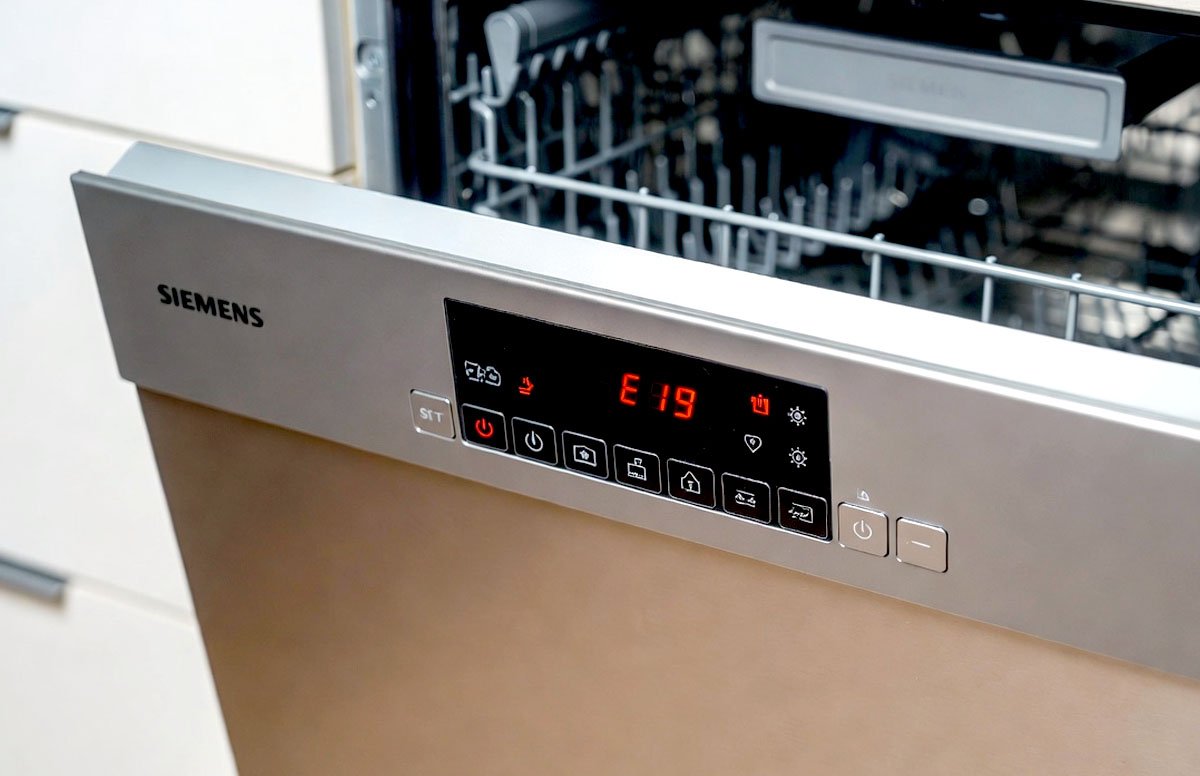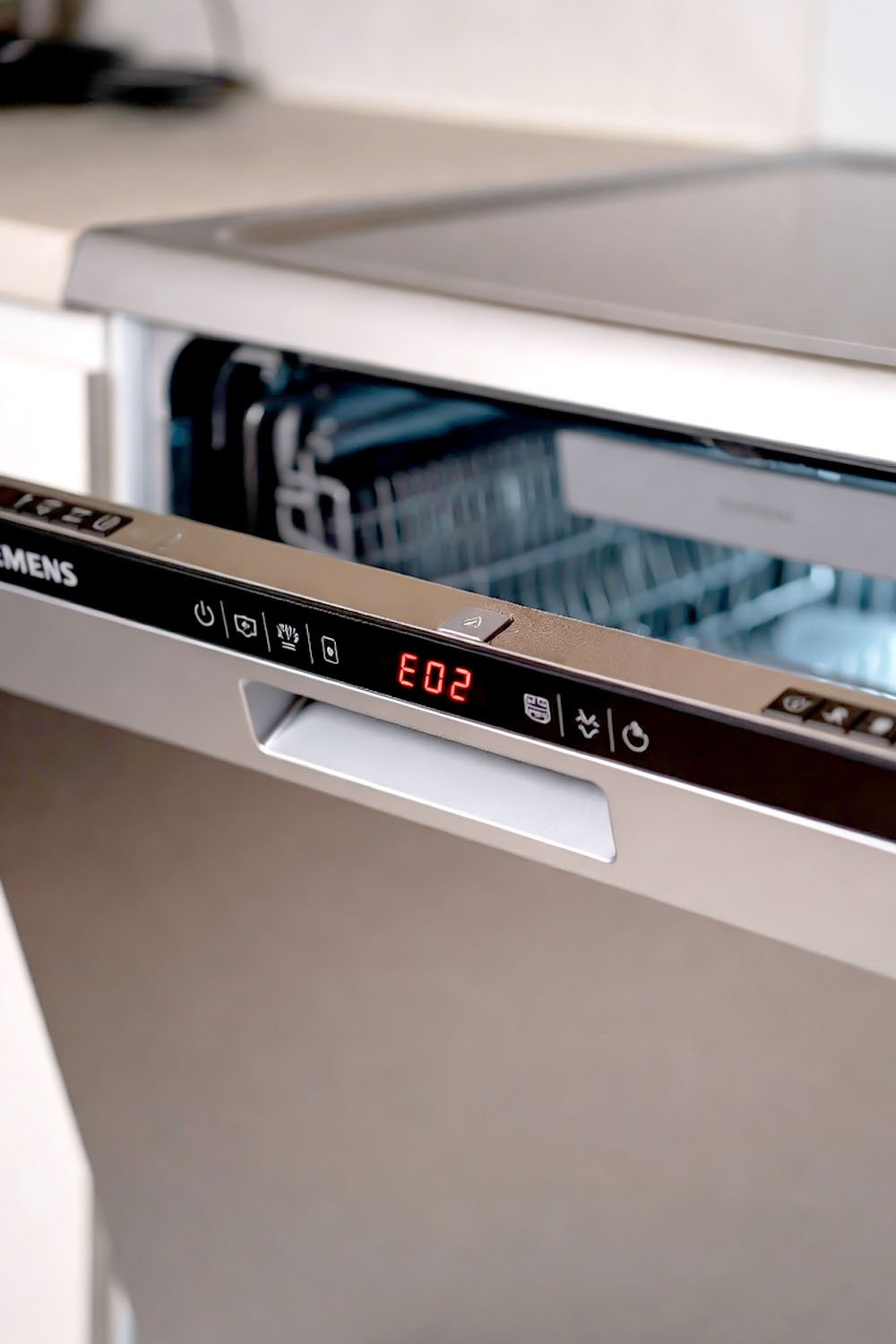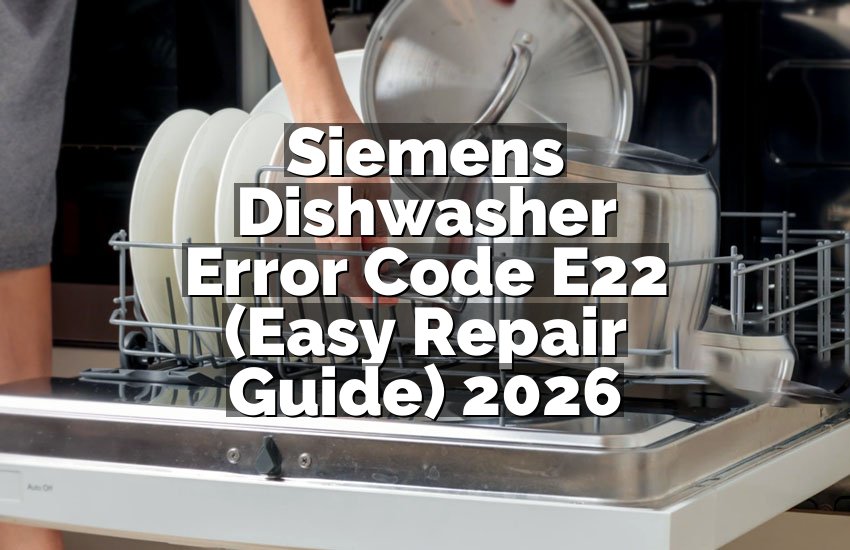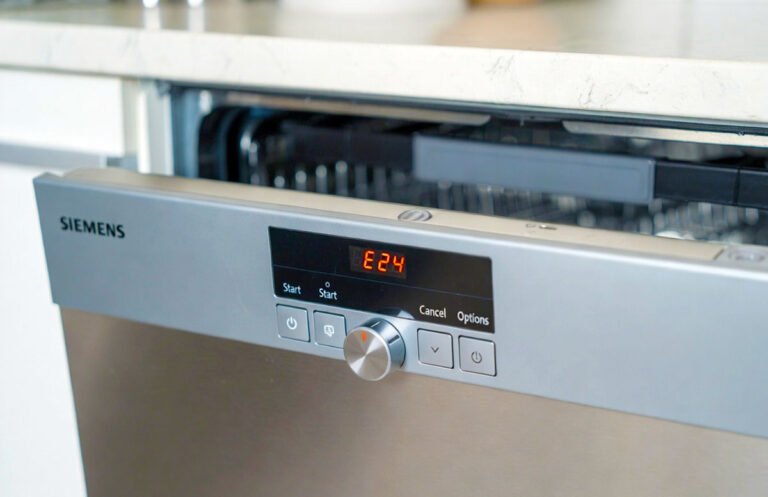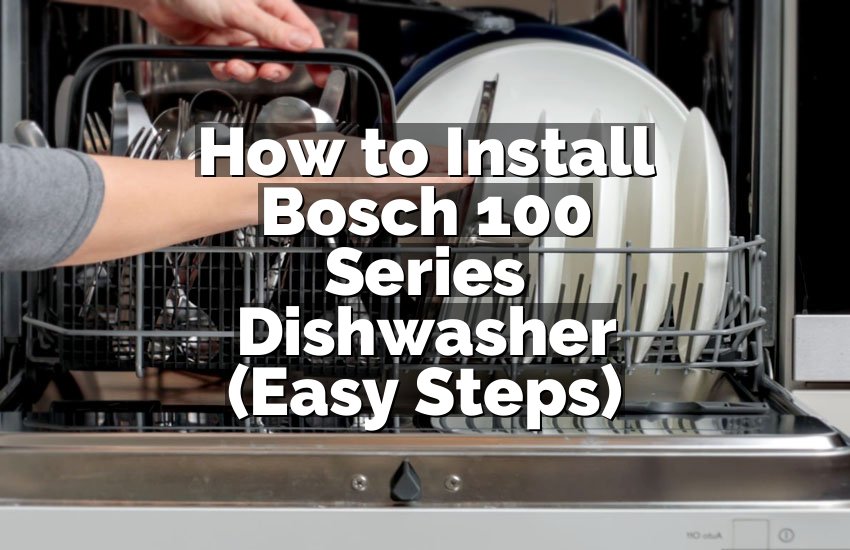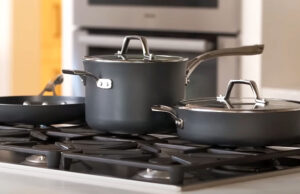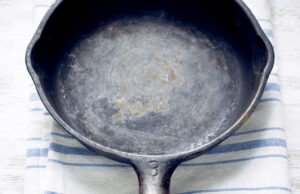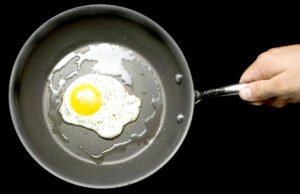As an Amazon Associate, I earn from qualifying purchases at no extra cost to you.
Does Dishwasher Soap Expire? Know This Before Using It Again
You probably found an old bottle of dishwasher soap in your kitchen cabinet and now you’re wondering, does dishwasher soap expire? Yes, dishwasher soap can expire, and using expired soap might not clean your dishes properly. It can even leave a cloudy film or strange smell. I’ve been there myself, grabbing an old soap bottle thinking it would work the same. In this article, I will guide you through everything you need to know about dishwasher soap, how long it lasts, how to store it, and when it’s time to throw it away.
Understanding How Dishwasher Soap Works
Dishwasher soap, also called detergent, is made to clean your dishes by removing food, grease, and stains during the wash cycle. It contains special ingredients that break down dirt and leave your dishes shiny and clean. There are different forms of dishwasher soap, like powder, gel, tablets, or pods. Each one works a bit differently, but the goal is always the same — clean dishes.
The soap works best when used with hot water inside your dishwasher. Heat helps activate the cleaning agents, which then attack the food bits and grease on your dishes. Many dishwasher soaps also have a special ingredient that stops water spots from forming, especially on glassware.
Over time, the ingredients in the soap can start to break down. This means the soap might not clean as well as it used to. For example, if you have an old box of powder soap, it might turn hard and clumpy. If you have an old gel bottle, it might separate or become watery. Tablets or pods might lose their outer coating or stick together.
Most dishwasher soaps have a shelf life of about 1 to 2 years. After that, the cleaning power gets weaker. That doesn’t mean it will hurt your dishes, but it won’t work like it should. You might need to rewash dishes or deal with spots and streaks.
You should always check the packaging for any signs of damage or expiration dates. Some brands print the date clearly, while others may use codes that are harder to read. If the soap looks strange or smells odd, it’s best not to use it.
What’s in your soap also matters. Some eco-friendly soaps may expire faster because they use natural ingredients with fewer preservatives. Traditional soaps may last a little longer, but they still lose power over time.
- Dishwasher soap breaks down food and grease
- Comes in forms like powder, gel, and pods
- Works best with hot water in the dishwasher
- Loses power after 1 to 2 years
- Old soap may not clean properly
Signs Your Dishwasher Soap Has Expired
It’s not always easy to tell if dishwasher soap has expired just by looking at it. But there are a few clear signs that can help you know if it’s no longer good to use.
The first sign is the texture. Powder soap can get clumpy or hard. If you open the box and see big chunks or the powder doesn’t flow freely, it’s likely too old. Humidity and moisture in the air can make powder soap go bad faster.
For gel soap, the texture can also change. If it becomes watery, thick, or separates into layers, that’s a sign the ingredients are no longer mixed well. This can happen if the bottle has been sitting for a long time or if it was not sealed properly.
Tablets and pods are another common form of dishwasher soap. If they’re stuck together, melted, or the plastic wrapper is damaged, they are probably no good. Pods also break down if stored in a hot or humid place.
Another clue is the smell. Dishwasher soap usually has a fresh or neutral scent. If it smells sour, off, or just unusual, it might have expired. Bad smells can mean the ingredients have gone bad or mold has started growing, especially if moisture got inside.
Even if the soap looks okay, it might not work well. If you notice that your dishes are not coming out clean, or they have spots and food stuck on them, your soap might be expired. Sometimes people think it’s a problem with the dishwasher, but it’s really the soap.
Always look at the expiration date if it’s listed. Some brands don’t print it clearly, so you might need to check the date of purchase. If it’s been more than 2 years, it’s safer to replace it.
- Powder turns clumpy or hard
- Gel separates or gets watery
- Pods melt, stick together, or lose shape
- Smells strange or sour
- Dishes come out dirty or streaky
How to Store Dishwasher Soap Properly
Proper storage is very important if you want your dishwasher soap to last longer. Many people keep soap under the kitchen sink, but that might not be the best place.
Moisture is one of the biggest enemies of dishwasher soap. If it gets into the container, the soap can become hard, sticky, or even moldy. That’s why it’s better to keep soap in a cool, dry place. A high cabinet away from the stove, sink, or dishwasher is a better option.
If you use powder soap, make sure the box or container is sealed tightly after every use. Even a little bit of moisture can ruin it over time. You can transfer powder soap into an airtight container with a lid to keep it safe.
For gel soap, the original bottle is usually fine, but make sure the cap is screwed on tight. If the cap breaks, transfer the gel to another container with a good lid.
Pods and tablets come in resealable bags or boxes. Always close them tightly and don’t leave them open. Some people like to store pods in glass jars, but make sure they are dry and the lid seals well. Keep these jars out of direct sunlight and away from heat.
Temperature also matters. Do not store dishwasher soap in hot places like next to an oven or heater. High heat can break down the ingredients. Freezing is also not good. Extreme cold can cause gels to separate and pods to crack.
Labeling your soap with the date you bought it can also help. This way, you’ll know how old it is and when it’s time to replace it.
- Store in a cool, dry place
- Keep away from heat, moisture, and sunlight
- Seal all containers tightly
- Use airtight jars for powder and pods
- Write the purchase date on the bottle
What Happens If You Use Expired Dishwasher Soap
You might be thinking, what’s the worst that can happen if you use old dishwasher soap? The answer depends on how old it is and what kind it is.
If the soap is just a little old, maybe a few months past its best date, it might still work a little. You may not get a deep clean, but your dishes won’t be damaged. However, the older the soap gets, the less cleaning power it has.
Using expired soap can leave dishes with food spots or grease. Glasses may come out with cloudy marks or streaks. You might need to wash dishes again, which wastes water and time.
Another problem is the smell. If the soap has gone bad, it might leave a bad smell on your dishes or inside the dishwasher. This can be annoying and hard to get rid of.
Some people worry if expired soap can harm the dishwasher. In most cases, it won’t damage the machine. But thick gel or clumped powder can clog the detergent tray. Pods that have melted might not dissolve properly and could stick to parts inside.
Using expired soap again and again can also make you think your dishwasher is broken when it’s not. You may end up calling for repairs or buying a new one when all you really needed was fresh soap.
The worst-case scenario is using soap with mold or that has reacted badly with moisture. This can spread bad smells or even affect your health if it gets on your hands or dishes. Always check the soap before use.
- Dishes come out dirty or greasy
- Glassware may look cloudy or stained
- Bad smell can stay in the dishwasher
- Old soap may clog the machine
- Could waste time and water from rewashing
Best Ways to Use Dishwasher Soap for Better Results
If you want the best results from your dishwasher soap, even if it’s still fresh, how you use it matters a lot. Many people make small mistakes that can lead to poor cleaning.
Always use the right amount of soap. More is not better. Too much soap can leave a film on dishes, while too little won’t clean well. Follow the instructions on the label. If you have soft water, you can use less soap. Hard water might need a little more.
Make sure your dishwasher is clean and working properly. If filters are dirty or spray arms are blocked, even the best soap won’t help. Cleaning your dishwasher once a month can help it work better.
Load your dishes correctly. Don’t stack dishes too close together. Water and soap need space to reach every item. Put larger items like pots on the bottom rack and smaller items on the top.
Always check the detergent tray. Make sure it opens during the cycle and isn’t blocked. If you’re using pods, place them in the correct spot — not just tossed into the bottom of the dishwasher.
Run the hot water from your sink before starting the dishwasher. This gets hot water into the machine right away, which helps the soap work better.
Don’t mix types of soap. Using powder with gel, or pods with liquid, can mess up the cycle. Stick to one kind each wash.
Use rinse aid if your dishes have water spots. Some soaps include rinse aid, but you can also add extra if needed.
- Use correct amount based on water type
- Keep dishwasher clean and parts unblocked
- Load dishes with space between them
- Place soap in the right tray
- Run hot water before starting the wash
When to Replace Your Dishwasher Soap
Even if you store it well, there comes a time when it’s just better to get a new box, bottle, or bag of dishwasher soap. Knowing when to replace it can save you a lot of trouble.
If the soap is more than 2 years old, it’s usually time to let it go. Even if it still looks okay, the cleaning power has dropped. You’ll spend more time rewashing dishes or wondering why they don’t sparkle.
If your dishes are coming out with weird smells, white spots, or not getting clean, and nothing else has changed, the soap could be the reason. Try a fresh batch and see if there’s a difference.
Changes in texture or smell are clear warning signs. If powder is hard, gel is separated, or pods are sticky, don’t risk it. New soap isn’t that expensive, and it will work better.
If you recently moved and found old soap in your new place, throw it out unless it’s clearly new. You don’t know how it was stored, and it may have gone bad.
Always replace the soap after a long break. If you haven’t used your dishwasher in a few months, check the soap. Heat, humidity, or cold could have damaged it while sitting.
Buying smaller packages more often is a smart idea. It stays fresh longer and you won’t waste any if it goes bad.
- Replace if older than 2 years
- Switch if dishes stay dirty or smell bad
- Don’t use if soap looks or smells strange
- Toss old soap after moving or long breaks
- Buy smaller packs more often
Final Thoughts
Using expired dishwasher soap might not seem like a big deal, but it can make your dishes dirty, leave bad smells, and waste your time. Soap loses power after 1 to 2 years, and how you store it makes a big difference. Always look for changes in texture, smell, or how well it works. Keeping your soap fresh helps your dishwasher do a better job and keeps your dishes shiny and clean. Replace old soap when needed, and follow good storage habits to get the best results every time.
Frequently Asked Questions (FAQs)
Is it safe to use old dishwasher soap?
It is usually safe, but not always effective. If the soap is only a little old and has no bad smell or clumps, it may still clean your dishes. But old soap often does not work well and can leave your dishes greasy or spotty. If it smells bad or looks strange, it is better not to use it. Bad soap can even affect your dishwasher’s performance. It is always safer and better to use fresh soap for clean and healthy dishes.
Can dishwasher soap go bad before the expiration date?
Yes, it can go bad early if not stored correctly. Heat, moisture, and air can make dishwasher soap lose its cleaning power even before the printed date. For example, powder can turn clumpy, and pods can stick together. If the container was left open or stored near a heat source, the ingredients can break down faster. That is why storing soap in a cool, dry place with a tight lid is very important. Always check your soap before using it, even if it’s not expired yet.
Is it okay to mix different dishwasher soap types?
It is not a good idea to mix different kinds of dishwasher soap like powder with gel or pods with liquid. Mixing them can cause too many suds, block the detergent tray, or confuse your dishwasher’s cleaning cycle. Each soap type is made to work on its own. If you are running out, just use one type or wait until you can buy more. Using one kind at a time helps your dishwasher work the way it should and keeps your dishes clean.
Can expired dishwasher soap damage my dishwasher?
In most cases, expired soap will not break your dishwasher. But it can leave sticky messes, block the detergent tray, or cause buildup inside the machine. Gel might get thick and stay in parts of the dishwasher. Powder might clump and not wash away. Pods that melted can stick to the inside. Over time, this can make the dishwasher work harder or not clean properly. It’s best to avoid these problems by using soap that is fresh and stored well.
Do I need to throw away clumpy powder soap?
Yes, you should throw it away. When powder soap becomes clumpy or hard, it means moisture got inside. This makes it hard to measure and may stop it from dissolving in the dishwasher. Even if it looks like it might work, it will probably not clean your dishes well. Using clumpy soap can also block the soap tray. It’s safer to get a new box and store it in a dry, airtight container next time. That way, it will stay fresh longer.
Can I still use dishwasher pods if they are stuck together?
It is better not to use them. When dishwasher pods stick together, it means heat or moisture got to them. If you try to pull them apart, they might break or leak. Using stuck pods can cause the soap not to release properly, and your dishes may come out dirty. Also, broken pods can leave a sticky mess inside your dishwasher. It’s best to throw away damaged pods and buy a new pack. Keep the new pack sealed and dry for longer use.
Is it okay to store dishwasher soap under the sink?
It depends. Many people keep their dishwasher soap under the sink, but that spot is often humid because of the pipes. If the soap is in a sealed, airtight container, it may be okay. But if the area gets wet or warm, the soap can go bad faster. Pods might melt, powder might get clumpy, and gel could separate. A high, dry cabinet away from heat and water is a much better place to store your soap to keep it fresh longer.
Do I have to follow the amount instructions on the soap bottle?
Yes, you should. The instructions are there to help you use the right amount. Using too much soap can cause streaks or film on your dishes. Using too little might not clean them well. If you have hard or soft water, the amount you need can also change. Read the label and adjust if needed. Following the instructions helps you get the cleanest dishes and saves money by not wasting soap. It also protects your dishwasher from buildup.

